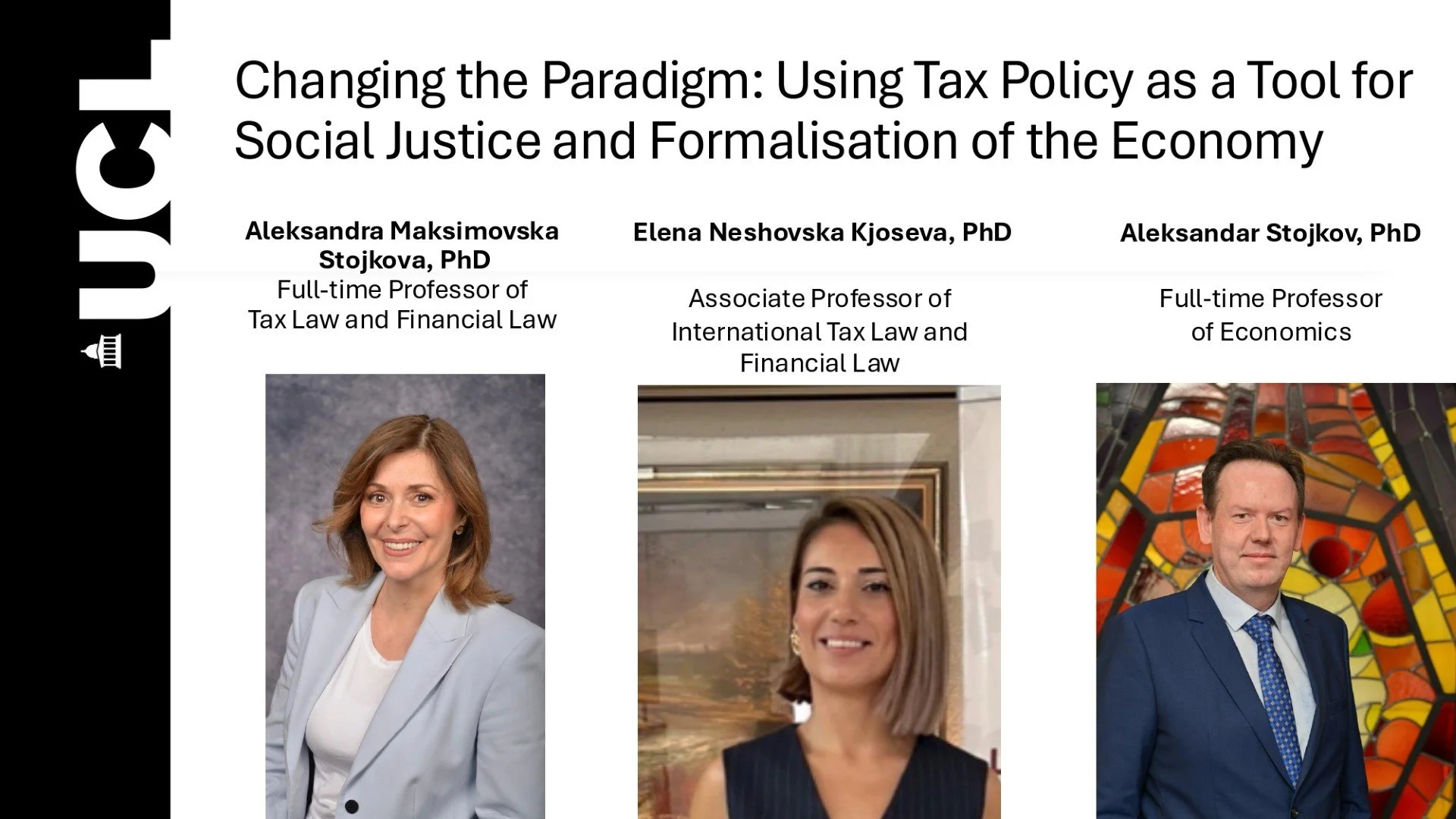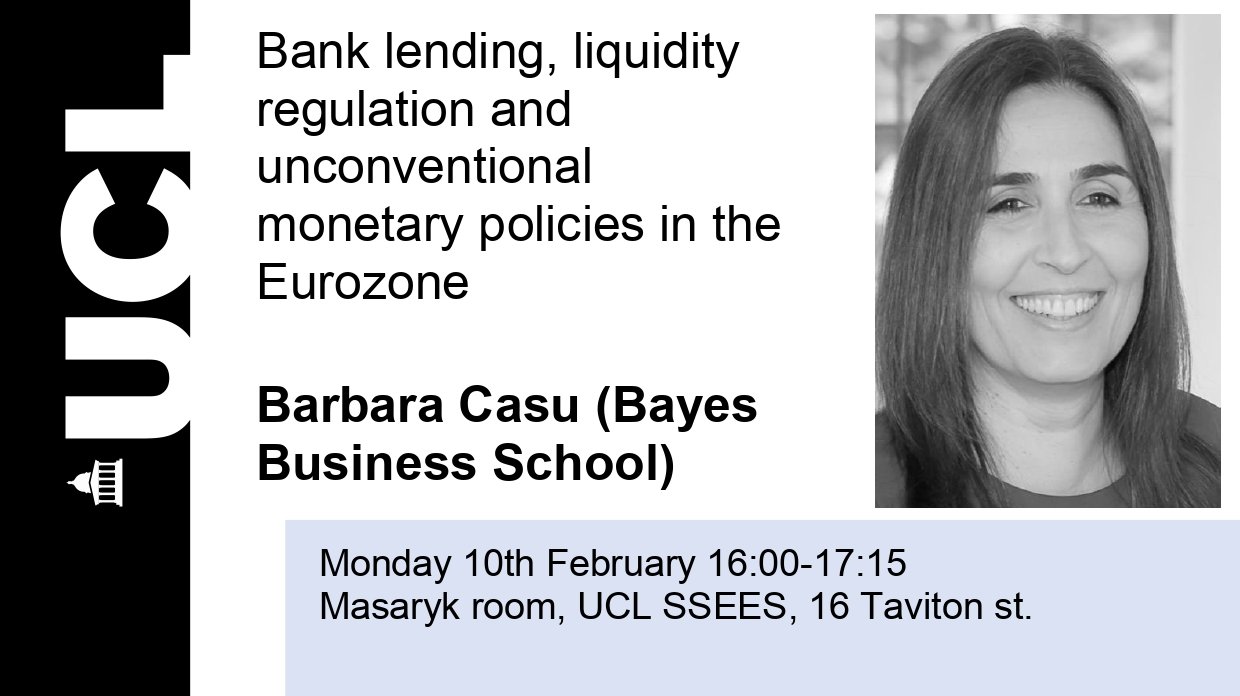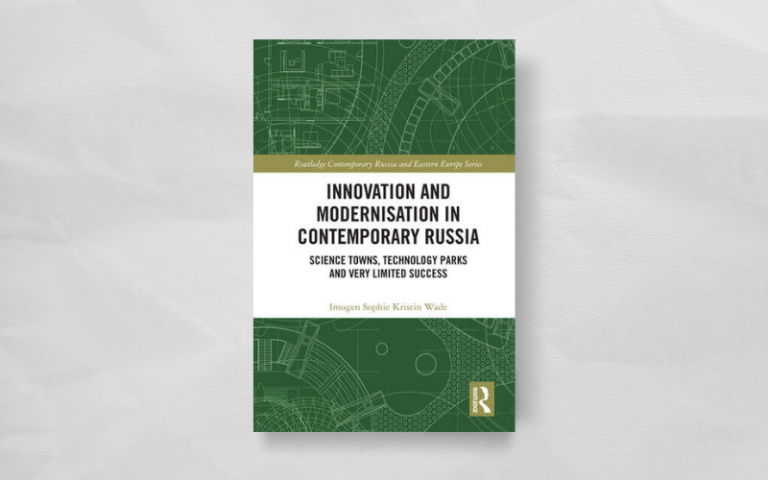Upcoming Events

12th London Inequality Workshop
The London Inequality Workshop brings together researchers studying economic inequality, based in and around London.
The London Inequality Workshop, organised by the London Inequality Network (LIN), brings together researchers studying economic inequality and related topics to present and discuss their work in a relaxed and supportive setting. If you would like to stay informed about upcoming workshops and related events, you are warmly invited to sign up to the LIN mailing list.
Upcoming presenters:
Jeanne Bomare (LSE)
Title: Unexpected Deaths and Wealth Transfers: Estimating Inheritance Tax Planning in the United Kingdom
Valentina Gabrielli (LSE)
Title: Climbing the Ladder? How Latin Americans See Their Economic Mobility
Invited External Speaker:
Salvatore Morelli (Roma Tre University)
Title: Inheritance and Wealth Inequality

SEMINAR SERIES
On Monday November 24th, Lidia Smitkova, from the University of Oxford, will present at the UCL CNET seminar. Lidia is a postdoctoral research fellow at Nuffield College and the Department of Economics at the University of Oxford. Her research interests are trade, international macroeconomics, structural change and economic history.
Title: Export Subsidies as Industrial Policy: the Case of the 19th Century Sugar Industry
Abstract:
Can export subsidies spur technological upgrading? What are their welfare implications? We build a model in which firms select into exporting and can pay to upgrade technology. An export subsidy can induce upgrading by increasing exporters' scale, making upgrading worthwhile. Despite this, we show that an export subsidy is not generally welfare-improving. Absent spillovers -- whereby social benefits from upgrading exceed private -- adoption is efficient. With spillovers, welfare effect comprises: (i) a positive term from moving the adopter share toward the social optimum, and (ii) an allocative term whose sign depends on whether the subsidy alleviates or aggravates pre-existing misallocation. We test the model using a natural experiment in the nineteenth-century Austro-Hungarian beet-sugar industry: an 1864 consumption-tax reform unintentionally created a 12\% export subsidy as the industry transitioned to new sugar-extraction technology. Newly digitized factory-level data show that the subsidy reallocated production toward high-export-access regions, whose factories adopted frontier technology earlier. Complementary evidence from France documents positive local spillovers. Calibrating the model to Austro-Hungarian data, we find the subsidy increased adoption but exceeded the optimum, reducing welfare. In turn, by worsening misallocation caused by the pre-existing protective tariff any positive export subsidy would have been counterproductive.

SEMINAR SERIES
Aleksandra Maksimovska Stojkova, Elena Neshovska Kjoseva and Aleksandar Stojkov
Monday, 10th November 2025
16:00-17:15
Masaryk Room, 16 Taviton Street, London
Changing the Paradigm: Using Tax Policy as a Tool for Social Justice and Formalisation of the Economy
“A new research initiative is being introduced that addresses one of the most significant societal challenges in North Macedonia and the Western Balkans - social inequality and the shadow economy - through innovative, evidence-based tax policy solutions. The project will offer a fresh perspective on how modern legal and economic approaches can contribute to creating a fairer, more transparent, and socially just system. It highlights the importance of rethinking tax regulation to better reflect the realities of everyday life, strengthen social equity, and align the country with European standards. The presentation will provide insights into the project’s scientific foundations, key objectives, and the innovative methods used to develop practical policy recommendations. It will also showcase the establishment of a Scientific Center for Tax Law and Finance, designed to ensure long-term sustainability, international collaboration, and continued research excellence.”
About the speaker:
Our speakers are visiting from Iustinianus Primus Law Faculty, in Skopje, where Aleksandra Maksimovska Stojkova is a Professor of Tax Law and Financial Law, Elena Neshovska Kjoseva is an Associate Professor of International Tax Law and Financial Law and Aleksandar Stojkov is a Professor of Economics.

10th London Inequality Workshop
The London Inequality Workshop brings together researchers studying economic inequality and related topics to present and discuss their work in a relaxed and supportive setting. The goal is to encourage open discussion and collaboration by sharing ideas, research proposals, papers, or overviews at various stages of development.
Upcoming presenters:
Daniele Girardi (King's College London) and Roberto Veneziani (Queen Mary University of London)
Title: Exploitation: Theory and Empirics (with Nicolas Grau and Naoki Yoshihara)
Elena Casanovas Navarro (University College London)
Title: Labor force growth and firm dynamics in the U.S. and Europe
Joao Pereira dos Santos (Queen Mary University of London, ISEG University of Lisbon, REM/UECE and IZA Institute of Labor Economics)
Title: Treasure Islands, Real Jobs? Workers and Anti-Avoidance Policies in a Tax Paradise
Venue: The event will take place at the UCL School of Slavonic and East European Studies (SSEES), starting at 16:30 in the Masaryk Room (4th floor).

SEMINAR SERIES
Bank lending, liquidity regulation and unconventional monetary policies in the Eurozone (joint with Laura Chiaramonte and Doriana Cucinelli)
“Using an extensive bank-level dataset with quarterly data, we evaluate the impact of liquidity regulation and unconventional monetary policies on Eurozone banks’ lending. We find that the introduction of the Net Stable Funding Ratio (NSFR) did not affect total bank lending but caused a reduction in long-term lending and an increase in short-term lending. This maturity swap effect is in line with the aim of the NSFR to reduce the maturity transformation risk. Our analysis also reveals a positive effects of the European Central Bank’s (ECB) Longer-Term Refinancing Operations (LTROs) on banks’ medium- and long-term lending and a weak positive effect of the Targeted Longer-Term Refinancing Operations (TLTROs) on total lending.. Finally, we find that the ECB’s refinancing programmes (LTROs and TLTROs) mitigate the impact of the introduction of the NSFR on banks' lending”
About the Speaker:
Barbara is a Professor of Banking and Finance as well as the Director of Centre for Banking Research at Bayes Business School, City University of London. Her main research interests are in financial regulation, structured finance, financial innovation, and corporate governance, with a focus on the European banking sector.

SEMINAR SERIES
On Monday January 27th, Ute Stephan will present at the UCL CNET seminar. Ute is a Professor of Entrepreneurship at King’s Business School, King’s College London. Her research is about entrepreneurs’ mental well-being, the psychology of entrepreneurship, sustainability, and societal impact. She ranks among the top 2% of scientists worldwide based on citations to her work (Stanford study) and received various international recognitions for her scientific contributions. The abstract of her talk is at the end of the email.
Title: Under pressure: Why, how and for which entrepreneurs stress enhances unethical pro-organizational behaviour
Authors: Ute Stephan, Hai-anh Tran, & Bach Nguyen
Abstract: Research documents the factors affecting entrepreneurs' mental wellbeing, and emerging evidence suggests its importance for their persistence, productivity, and firm performance. However, we lack theoretical and empirical understanding of how low mental wellbeing—particularly stress, which is ubiquitous among entrepreneurs—affects their decisions and actions. When feeling overwhelmed, entrepreneurs may make suboptimal decisions and engage in unethical actions, including 'unethical pro-organizational behavior' (UPB). UPB encompasses actions that violate social norms, values, and laws to benefit one's organization or venture. Through two experiments and a survey study, we investigate how and why stress facilitates entrepreneurs' engagement in UPB, while identifying which entrepreneurs are more/less susceptible to stress-induced UPB. Our findings provide novel insights into the consequences of entrepreneurial stress and establish stress and rumination as significant antecedents of UPB.

SEMINAR SERIES
The Political Economics of European Enlargements: Sticking Together, Catching Up, and Forging Ahead
Nauro Campos
This presentation will discuss the theoretical and econometric literatures on European Enlargements and intends to be a call to arms for economists to be more involved in the next (Ukraine-led) enlargement. It is organised in three parts. The first discusses the main features of an economists’ conceptual framework (stressing the economic theories of integration, clubs, and convergence) and identifies areas that may need further research. The second part is on context and implementation: it provides a brief historical overview of the four enlargements so far (i.e., Northern, Southern, Scandinavian, and Eastern) and distil three main lessons and attendant suggestions for future research. The third part focuses on the attempts so far to estimate the net economic benefits from previous enlargements. It documents the huge heterogeneity at both enlargement and country levels (e.g. productivity gains for the Scandinavian enlargement were substantially lower than that for all others and, for an example on cross-country heterogeneity, Latvia benefited the most from membership while Greece benefited the least, with the productivity gains enjoyed by the former being at least three times larger than those by the latter.) The presentation concludes with even more suggestions for future policy-oriented research.

SEMINAR SERIES
Fractal Macroeconomics
Marco Ranaldi
The paper proposes a novel framework for macroeconomics using fractal mathematics. Macroeconomic models have the objective of simplifying complex economic dynamics. HANK (Heterogeneous Agent New Keynesian) models, for instance, encapsulate a world of utility-maximising individuals and profit-oriented firms, each with distinct characteristics, whereas Agent-Based Models (ABMs) generate emergent behaviours from the interactions of independent agents. Differently from existing frameworks, fractal macroeconomics seeks to address the following questions: Can macroeconomic self-similarity be observed across different partitions, such as the population, to streamline complexity? Is it possible to identify a stable equilibrium among economic variables at varying scales? And, crucially, can we construct a macroeconomic framework that integrates disparate stylised facts discerned at different scales? The present framework focuses on economic self-similarity to distil complexity and forge links between macro- and microeconomic phenomena. By incorporating cycles and perspectives into the very concept of time, the ultimate goal is to discern macroeconomic equilibria or disequilibria within a fractal paradigm and to correlate disparate economic facts across multiple scales.
Social return on Investments for arts and creative industries: valuing social impact
Chiara Amini
In recent time public arts funders and arts organizations have increasingly come under pressure to show their economic and wider societal benefits. Arts and culture have a complex impact on individual life and society. In spite of extensive discussion on the value of culture and arts, there is still considerable research that needs to be carried out to articulate and show these benefits. We present the preliminary results from a Knowledge Exchange project between UCL and Creative United, an arts-based organisation funded by the Arts council. We are assessing the social and well-being impact of supporting access to arts and music as well as providing training to creative entrepreneurs in the UK. Our main approach is a Social return on Investment methodology to assess impact of key six social outcomes. The analysis relies on quantitative as well as qualitative evidence. We also investigated the impact of the programme on participants well-being using the UCL Creative Wellbeing measures, a framework designed to assess levels of psychological wellbeing arising from participation in creative activities.

BOOK LAUNCH
Visions of Inequality
BRANKO MILANOVIC
“How do you see income distribution in your time, and how and why do you expect it to change?” That is the question Branko Milanovic imagines posing to six of history's most influential economists: François Quesnay, Adam Smith, David Ricardo, Karl Marx, Vilfredo Pareto, and Simon Kuznets. Probing their works in the context of their lives, he charts the evolution of thinking about inequality, showing just how much views have varied among ages and societies. Indeed, Milanovic argues, we cannot speak of “inequality” as a general concept: any analysis of it is inextricably linked to a particular time and place.
Visions of Inequality takes us from Quesnay and the physiocrats, for whom social classes were prescribed by law, through the classic nineteenth-century treatises of Smith, Ricardo, and Marx, who saw class as a purely economic category driven by means of production. It shows how Pareto reconceived class as a matter of elites versus the rest of the population, while Kuznets saw inequality arising from the urban-rural divide. And it explains why inequality studies were eclipsed during the Cold War, before their remarkable resurgence as a central preoccupation in economics today.
Meticulously extracting each author’s view of income distribution from their often voluminous writings, Milanovic offers an invaluable genealogy of the discourse surrounding inequality. These intellectual portraits are infused not only with a deep understanding of economic theory but also with psychological nuance, reconstructing each thinker’s outlook given what was knowable to them within their historical contexts and methodologies.
About the author:
Branko Milanovic is Senior Scholar at the Stone Center on Socio-Economic Inequality at the City University of New York and Visiting Professor at the International Inequalities Institute at the London School of Economics and Political Science. Formerly Lead Economist in the World Bank’s research department, he is the author of Capitalism, Alone; and The Haves and the Have-Nots.
Panel:
Carolina Alves: Associate Professor in Economics at the UCL institute for Innovation and Public Purpose (IIPP)
Marco Ranaldi (Chair): Assistant Professor in Economics at UCL SSEES and Director of the UCL Centre for New Economics Transitions (CNET)

SEMINAR SERIES
Industrial Revolution Uncensored: Institutional Change and Useful Human Capital in the Wake of the 1848 Revolutions
Tomas Cvrcek
“Exploiting the 1848 revolution in the Habsburg Empire, I study how a sudden institutional change impacts economic development. In contrast to much existing research, which focuses on the rule of law and the security of property rights, I argue that the main impact occurred through the expansion of the upper-tail useful human capital (Mokyr, 2005) following the revolution. While the revolution was defeated, important liberalizing reforms persisted in the areas of (i) the press, (ii) technical education and (iii) knowledge-promoting voluntary associations – the information space, for short. Pushing back against the existing consensus that the revolution had no discernible impact on the empire’s economic development, I combine newly collected data on the pre-1848 and post-1848 information space with data on the use and location of steam engines in 1841–1863 to investigate the link between the post-1848 reforms and the diffusion of this important industrial technology.”

SEMINAR SERIES
Macroprudential Policy and Housing Market Expectations
Pei Kuang
“Using a large-scale online survey experiment, we study the effects of changes in three borrower-based macroprudential policies: residential loan-to-value (LTV), debt-to-income, and buy-to-let LTV ratio, on British consumers' housing market expectations. Policy tightenings lead to lower house price expectations, more negative sentiments about housing transactions, and worsened affordability evaluations; policy loosenings cause opposite effects. The residential LTV ratio is the most effective tool. Changes in residential LTV ratio have larger impacts on house price expectations in "hot'' markets. This finding is reconciled in a model featuring a feedback loop between house prices, credit, and price expectations.”
About the speaker:
Dr Pei Kuang is a Associate Professor in Economics. He received his Ph.D. from the Goethe University Frankfurt (Germany) and joined the Department of Economics in August 2012. His research focuses on empirical and theoretical analysis of imperfect knowledge in Macro and Finance with an emphasis on macroeconomic policy making and issues related to expectation formation and learning. He has published in the NBER Macroeconomics Annual, Journal of Monetary Economics, European Economic Review and other journals.

SEMINAR SERIES
Employment to self-employment transitions in response to differential taxation
Tom Zawisza (jointly with Justyna Klejdysz from LMU)
“We study the impact of a large tax cut for unincorporated business owners in Poland on high-income individuals' decision to transition from employment to unincorporated self-employment. The marginal tax rate for the highest-income business owners decreased from 40\% to a flat rate of 19% in 2004, while the highest-income employees remained subject to a progressive tax schedule with a top rate of 40%. We find a 26% increase in the probability of high-income employees switching to self-employment five years after the reform. Among those who made the transition, we observe a rise in the proportion of long-term solo self-employed individuals. The entries from employment to self-employment temporarily decreased after the reform of the progressive schedule in 2009 that lowered the tax differential; however, we do not observe the returns into employment of those who previously switched to self-employment. These findings suggest that large tax differentials increased the attractiveness of self-employment as an alternative to employment but did not necessarily increase entrepreneurship among those who switched to self-employment.”
About the speaker:
Tom Zawisza’s research focuses on analyzing the insurance and incentive effects of tax and welfare policy. He looks at this problem from two perspectives: a theoretical one, where I model individuals as forward-looking agents making optimal saving and labour-supply choices; and an empirical one, where I attempt to identify structural parameters of models from the data.

SEMINAR SERIES
The Declining Well-being of the Young
Alex Bryson
“Across hundreds of studies subjective wellbeing follows a u-shape in age, declining until people reach middle-age, only to rebound subsequently. Ill-being follows a mirror-imaged hump-shape. But this empirical regularity has been replaced by a monotonic increase in wellbeing by age. The reason for the change is the decline in young people’s wellbeing which has exceeded the rate of decline in wellbeing in older people. We present evidence for this fundamental change in the link between wellbeing and age using data for the United States and the United Kingdom. We show that the change began in around 2010-2011. In the UK the recent COVID pandemic exacerbated the trends by impacting most heavily on the wellbeing of the young, but this was not the case in the United States.”
About the speaker:
Alex Bryson is Professor of Quantitative Social Science at the Social Research Institute, and a Research Fellow at IZA, NIESR and Rutgers. His research interests are labour economics, industrial relations, and programme evaluation.

SEMINAR SERIES
Girl Power: Creating More with Less
Sonja Radas
“This study explores the performance of women-owned and men-owned firms in relation to business uncertainty. While most previous research suggests that men-owned firms outperform women-owned firms in terms of output measures, this study focuses on the level of uncertainty in the business environment. Using a panel dataset spanning 10 years in the period 2010 – 2019 and examining micro-enterprises in Croatia, Slovenia, and Slovakia, the study suggests that female-owned micro-enterprises may outperform their male-owned counterparts in economically uncertain environments. This advantage holds true not only when comparing countries with varying levels of economic uncertainty but also during periods of heightened uncertainty within each country. These findings contribute to understanding gender-based performance differences and highlight the potential for women-owned firms to excel in uncertain business environment.”
About the speaker:
Sonja Radas is a Senior Research Fellow at the Institute of Economics Zagreb, Croatia, and a Research Affiliate at the MIT Sloan School of Management. She received her PhD in mathematics from the University of Florida, Gainesville, in 1994, and her PhD In Business Administration from the same university in 1996. From 1996 to 2002 she was on the faculty of Olin School of Business, Washington University in St. Louis. Her longstanding area of interest is innovation economics, but recently she became interested in behavioral economics. From 2015–2018 she was a Marie Curie IOF Fellow of the EU-REA at MIT.

SEMINAR SERIES
Are Rushed Privatizations Substandard?
Jan Svejnar
“We provide the first analysis of whether “rushed privatizations” of state-owned enterprises, often carried out under fiscal duress and sometimes in collaboration with external institutions (such as IMF, ECB and EC, as in e.g., Greece), increase or decrease firms’ efficiency, scale of operation and employment. Using panel data from Poland’s census of firms with fifty or more full time equivalent employees over 1995-2015, we show that rushed privatization has negative efficiency, scale and employment effects relative to standard (non-rushed) privatization. Rushed privatization is also associated with a higher incidence of subsequent asset stripping, mass layoffs, asset stripping with mass layoffs, ownership changes, and a lower incidence of bankruptcies. Our results suggest that when policy makers consider carrying out rushed privatization, they ought to take these effects into account”.
Book here your free spot: https://www.eventbrite.co.uk/e/are-rushed-privatizations-substandard-tickets-743527389437?aff=oddtdtcreator
About the speaker:
Jan Svejnar is the Richard N. Gardner Professor of Economics and International Affairs and Director of the Center on Global Economic Governance at Columbia University. He focuses his research on (i) the effects of government policies on firms, labor and capital markets; (ii) corporate, national, and global governance and performance; and (iii) entrepreneurship, innovation and investment.
Professor Svejnar is also a founder and Chairman of CERGE-EI in Prague (an American-style MA-PhD program in economics that educates economists for Central-East Europe and the Newly Independent States). He is a Fellow of the European Economic Association and Research Fellow of the Center for Economic Policy Research (London) and Institute for the Study of Labor (IZA) in Bonn. From 1992 to 1997, Professor Svejnar served as the Founding Director of the Economics Institute of the Academy of Sciences of the Czech Republic. He also served as Co-Director of the Transition Programme at the Center for Economic Policy Research in London, President of the Association for Comparative Economic Studies, Associate Editor of the Journal of Economic Perspectives, editor of the Economics of Transition, Governing Board member of the European Economic Association, and Economic Advisor to President Vaclav Havel of the Czech Republic. He was honored with a Neuron Prize for lifelong achievement from the Karel Janeček Endowment for Research and Science in 2012 and the 2015 IZA Prize in Labor Economics from the Institute for the Study of Labor. In 2008 he was one of two presidential candidates in the Czech Republic.

SEMINAR SERIES
Golden Visas and Housing Markets
Clara Martínez-Toledano
“This paper studies the impact of golden visa programmes on housing markets. We exploit the introduction of the Spanish golden visa programme in 2013, after which non-EU investors can obtain a Spanish visa when investing at least 500,000 Euro in Spanish real estate. Using difference-in-differences techniques, we find that real estate prices grew faster in municipalities exposed to the programme, relative to those non-exposed. Golden visa programmes thus appear to have unintended consequences on housing markets via asset prices”.
About the speaker:
Clara Martínez-Toledano is an Assistant Professor of Financial Economics at Imperial College Business School and Wealth Distribution Coordinator at WID.world. She is also a CEPR and CESifo Research Affiliate and a Research Fellow at the EU Tax Observatory. Previously, she was a Postdoctoral scholar at Columbia Business School.

Workshop
Institutions, Inequality, and (Un)Happiness: A One-Day Workshop
on behalf of The Friday Association for Institutional Studies.

PhD Day
This event is an opportunity to an opportunity to discuss and exchange the results of PhD research generated within the UCL SSEES PhD study group.

Book Launch
The Ends of Freedom: Reclaiming America’s Lost Promise of Economic Rights.
Join us to hear Paul outline a comprehensive policy program to achieve a more capacious and enduring version of American freedom.

Seminar Series
CANCELLED DUE TO STRIKES - AI-tocracy
Prof Noam Yuchtman (London School of Economics)

Roundtable
Business Unusual: EBRD 2023 Transition Report
The annual roundtable discussion expanding the scope and insight on the EBRD 2023 Transition Report. This event will take place in-person and will also be livestreamed online.

Seminar Series
Wealth Inequality and Ethnic Conflict: the rise of the Extreme Right among German Bohemians
Dr Filip Novokmet (University of Bonn)

Seminar Series
Trump’s trade war with China and structural change in Vietnam.
Dr Pierre-Louis Vezina (King’s College London)

Seminar Series
POSTPONED DUE TO STRIKE ACTION - NEW DATE TBC
Knowing brown and inventing green? Incremental and radical innovative activities in the automotive sector.
Julia Mazzei (Sant’Anna School of Advanced Studies - Pisa)

Book Launch
The Centre for New Economic Transitions (CNET) at the UCL School of Slavonic and East European Studies is delighted to invite you to this online book launch of the recent book by Dr Imogen Wade, “Innovation and Modernisation in Contemporary Russia: Science Towns, Technology Parks and Very Limited Success.”







